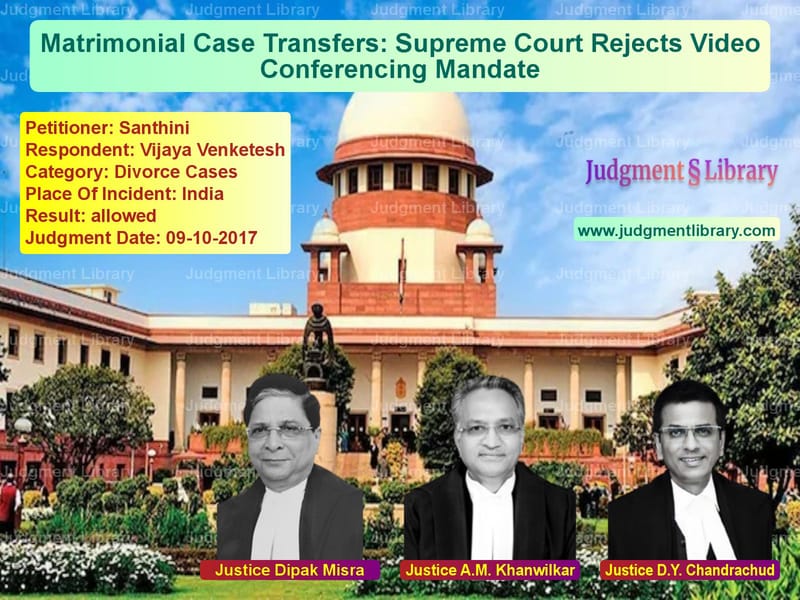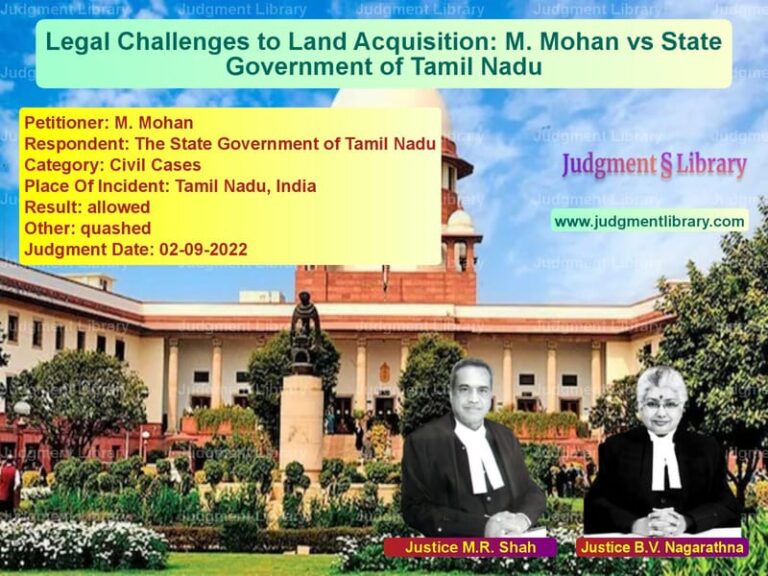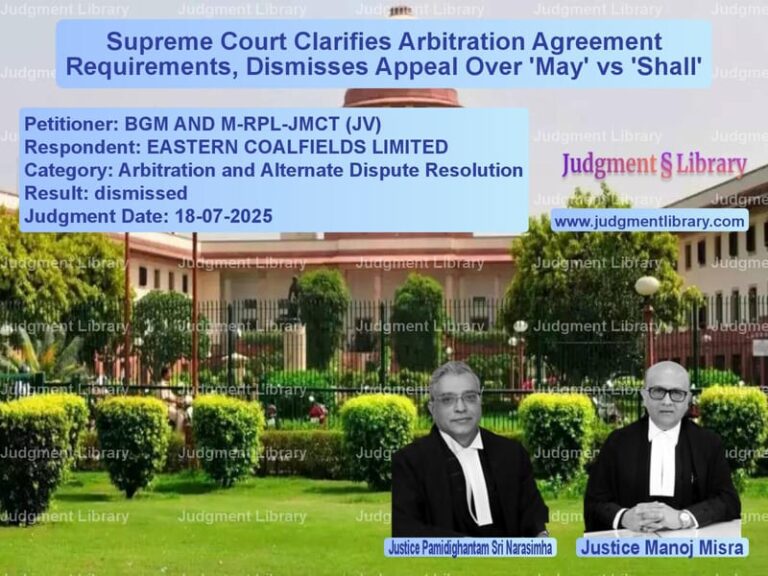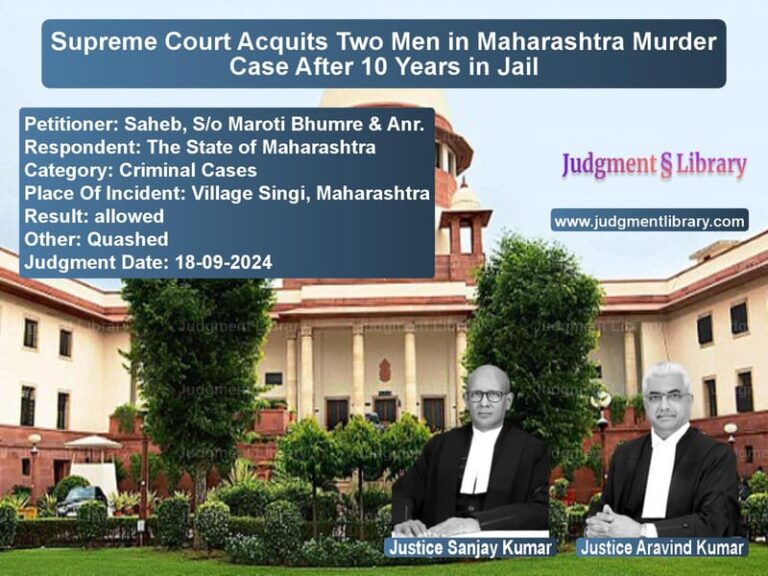Matrimonial Case Transfers: Supreme Court Rejects Video Conferencing Mandate
The Supreme Court of India, in the case of Santhini vs. Vijaya Venketesh, dealt with a critical issue regarding the transfer of matrimonial cases and the use of video conferencing as an alternative. The judgment, delivered on October 9, 2017, addressed whether courts should mandate video conferencing in matrimonial disputes, particularly when one party seeks a transfer of the case to a different jurisdiction.
The case revolved around the petitioner, who sought the transfer of a matrimonial dispute from one jurisdiction to another, citing difficulty in travel and other personal hardships. The respondent opposed the transfer and argued that the proceedings could be conducted via video conferencing, a practice supported by a prior Supreme Court decision in Krishna Veni Nagam vs. Harish Nagam.
Petitioner’s Arguments
The petitioner contended that:
- Matrimonial cases involve sensitive issues requiring in-person proceedings to ensure fairness and effective adjudication.
- The High Court had routinely allowed transfers in such cases to accommodate the convenience of the wife.
- The principle of justice demands that the weaker party, often the wife, should not be forced into a digital medium that may lack the same effectiveness as a courtroom setting.
- The Family Courts Act, 1984, envisions an approach that prioritizes reconciliation efforts, which may not be effectively achieved through video conferencing.
Respondent’s Arguments
The respondent, opposing the transfer, argued that:
- Video conferencing is a viable and efficient alternative that prevents unnecessary case transfers.
- Modern technology allows for effective face-to-face interaction even when parties are in different locations.
- Several High Courts have endorsed video conferencing as a tool to expedite family law cases and reduce logistical burdens on litigants.
- Personal presence in court should not be mandated when technology offers a feasible alternative.
Key Observations by the Court
The Supreme Court ruled in favor of the petitioner, rejecting the blanket use of video conferencing in matrimonial disputes. The bench observed:
“The Family Courts Act, 1984, mandates that cases should be handled with sensitivity, with the primary objective being reconciliation and settlement. The presence of both parties in a physical courtroom is often necessary to ensure fairness and effective mediation.”
The Court further noted:
- Matrimonial cases involve emotions, personal issues, and sometimes elements of domestic abuse that require careful and confidential handling.
- While technology is an enabler, it cannot replace the fundamental requirement of personal interaction in family disputes.
- The principle of forum non conveniens does not apply rigidly to matrimonial cases, and courts should be flexible in considering transfer requests.
- Forcing one party to engage in proceedings via video conferencing against their will violates the statutory right under Section 11 of the Family Courts Act, 1984, which allows for in-camera proceedings.
Final Judgment
The Supreme Court overruled the earlier decision in Krishna Veni Nagam and held:
“The discretion to allow video conferencing must rest with the Family Court and should only be exercised after considering all factors, including the willingness of both parties.”
The Court further clarified:
“In a transfer petition, video conferencing cannot be directed as a default option. Matrimonial cases involve deeply personal issues, and the principle of access to justice requires that no party is forced into a digital medium against their wishes.”
Conclusion
This judgment reaffirms the importance of physical presence in matrimonial cases while recognizing that video conferencing may be an option only if both parties consent. The ruling ensures that courts consider the emotional and logistical challenges faced by litigants before mandating digital proceedings.
Don’t miss out on the full details! Download the complete judgment in PDF format below and gain valuable insights instantly!
Download Judgment: Santhini vs Vijaya Venketesh Supreme Court of India Judgment Dated 09-10-2017.pdf
Direct Downlaod Judgment: Direct downlaod this Judgment
See all petitions in Mutual Consent Divorce
See all petitions in Domestic Violence
See all petitions in Alimony and Maintenance
See all petitions in Judgment by Dipak Misra
See all petitions in Judgment by A M Khanwilkar
See all petitions in Judgment by Dhananjaya Y Chandrachud
See all petitions in allowed
See all petitions in supreme court of India judgments October 2017
See all petitions in 2017 judgments
See all posts in Divorce Cases Category
See all allowed petitions in Divorce Cases Category
See all Dismissed petitions in Divorce Cases Category
See all partially allowed petitions in Divorce Cases Category







